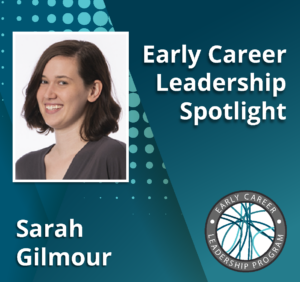GENETICS is pleased to announce five new editors for the Molecular Genetics of Development section of the journal: Daniela Drummond-Barbosa, Chi-Chung Hui, Hamed Jafar-Nejad, Elliot Meyerowitz, and Karuna Sampath.
Daniela Drummond-Barbosa

Daniela Drummond-Barbosa is a Professor in the Department of Biochemistry and Molecular Biology at Johns Hopkins University. Her research focuses on the physiological mechanisms regulating stem cell lineages in Drosophila. Daniela received her BS in Biochemistry and Immunology from the Universidade Federal de Minas Gerais (Brazil) and her PhD in Genetics from Yale University. She did her postdoctoral training with Dr. Allan Spradling at the Carnegie Institution for Science. In 2002, Daniela joined the Department of Cell and Developmental Biology at Vanderbilt University as an Assistant Professor and, in 2009, relocated her lab to Johns Hopkins. Daniela was elected as a Fellow of the American Association for the Advancement of Science in 2014. She has also served as a regular member of the DDC Peer Review Committee of the American Cancer Society (2012-2017) and of the CMAD Study Section of the National Institutes of Health (2016-2020).
Chi-Chung Hui

Chi-Chung Hui is a molecular and developmental biologist by training. His research focuses on genes (e.g. Gli zinc finger genes and Iroquois homeobox genes) and pathways (e.g. Hedgehog signaling) in development and disease. The Hui lab uses the mouse as a model for studying the genetic basis of various human congenital malformations as well as disease conditions including cancer and obesity. He is currently a Senior Scientist in the Program in Developmental & Stem Cell Biology at The Hospital for Sick Children and a Professor of Molecular Genetics at the University of Toronto in Canada.
Hamed Jafar-Nejad

Hamed Jafar-Nejad is an Associate Professor in the Department of Molecular & Human Genetics at Baylor College of Medicine. He received his MD degree from Tehran University of Medical Sciences, followed by postdoctoral trainings at the University of Ottawa and Baylor College of Medicine/HHMI. His group uses Drosophila and mouse models to study the roles of glycosylation and deglycosylation in the regulation of animal development. They also use animal models to identify and characterize dosage-sensitive genetic modifiers of a number of rare human diseases, hoping to better understand their molecular mechanisms and to establish novel therapeutic approaches for these diseases.
Elliot Meyerowitz

Elliot Meyerowitz is the George Beadle Professor of Biology, and a Howard Hughes Medical Investigator at the California Institute of Technology, where he has been on the faculty since 1980. In 2011 and 2012, while on leave from Caltech, he served as the Inaugural Director of the Sainsbury Laboratory at the University of Cambridge. The Meyerowitz laboratory studies the development of Arabidopsis thaliana. Current studies concentrate on the interrelated roles of mechanical and chemical signaling in plant morphogenesis, using genetics, genomics, and live imaging. With collaborators they also develop computational models of plant growth and development, as tests of experimental hypotheses.
Karuna Sampath

Karuna Sampath is a Professor at Warwick Medical School in the United Kingdom, where her group uses zebrafish genetics to understand the fundamental mechanisms that control vertebrate development. Karuna obtained her BSc degree at the University of Delhi and MSc from the Maharaja Sayajirao University, respectively, in India. She first began working on zebrafish during her doctoral training at Indiana State University in the USA. As a postdoc at Vanderbilt University and subsequently at the Institute of Molecular Agrobiology in Singapore, she identified key roles for Nodal signalling in the early development of frogs and zebrafish. She started her group in Singapore in 2000 and moved to Warwick in 2013, where her lab continues to focus on the functions and regulation of signalling pathways in embryonic and germline development.













